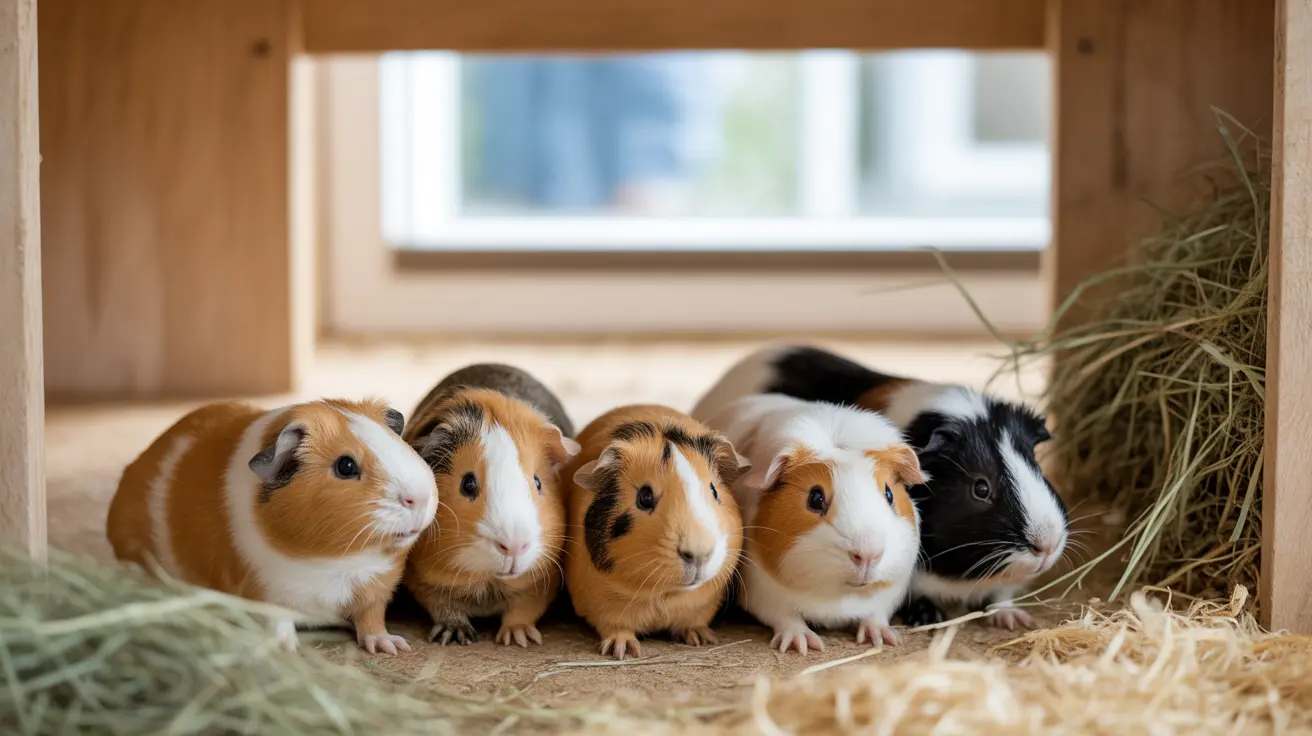A concerning incident at a Marana animal rescue facility has drawn attention to the vulnerability of small pet sanctuaries after 25 guinea pigs were stolen from the premises. The Pima County Sheriff's Department (PCSD) detectives quickly launched an investigation into this unusual case of guinea pig theft in Marana, demonstrating the seriousness with which law enforcement treats crimes against animal welfare organizations.
The theft, which targeted specifically guinea pigs from the rescue center, highlights the need for enhanced security measures at animal welfare facilities. This incident has sparked discussions about protecting vulnerable animals in care facilities while maintaining their accessibility to legitimate adopters and caregivers.
Animal Rescue Security Concerns in Arizona
The theft of multiple guinea pigs from a single facility raises important questions about the security challenges faced by animal rescues. While these organizations strive to create welcoming environments for potential adopters, they must also protect their animal residents from unauthorized access and potential harm.
Preventing Animal Theft: Essential Security Measures
- Installing motion-activated cameras and proper lighting
- Maintaining secure locks on all entry points
- Implementing sign-in procedures for visitors
- Regular security audits and staff training
- Establishing emergency response protocols
Small Pet Theft Investigation Procedures
Law enforcement's quick response to this case demonstrates the importance of treating animal theft as a serious crime. The PCSD's involvement shows how dedicated resources and professional investigation techniques can lead to positive outcomes in cases involving stolen pets.
Community Support for Animal Rescues
The incident has rallied community support for local animal rescue organizations. When thefts occur, the collaboration between law enforcement, animal welfare groups, and community members becomes crucial for the successful recovery of stolen animals.
Caring for Rescued Guinea Pigs
Following any theft incident, ensuring the well-being of recovered animals becomes a top priority. Guinea pigs require special care and attention, particularly after experiencing the stress of being removed from their familiar environment:
- Thorough health assessments upon recovery
- Maintaining proper diet and housing conditions
- Monitoring for signs of stress or illness
- Providing gentle handling and quiet environments for recovery
Frequently Asked Questions
What steps did law enforcement take to recover the stolen guinea pigs?
The Pima County Sheriff's Department (PCSD) detectives conducted a thorough investigation that led to arrests and the recovery of the stolen guinea pigs. While specific investigative techniques aren't detailed in this case, law enforcement typically works closely with animal rescue organizations and the community to locate stolen animals.
How can animal rescues improve security to prevent similar thefts?
Animal rescues can enhance security by installing surveillance systems, implementing strict access controls, maintaining proper lighting, and training staff in security protocols. Regular security assessments help identify and address potential vulnerabilities before incidents occur.
What care do guinea pigs need after being recovered from theft?
After recovery, guinea pigs should receive immediate veterinary attention to assess their health status. They need to be provided with appropriate nutrition, clean housing, and a calm environment to recover from any stress. Regular monitoring for behavioral changes or health issues is essential during the recovery period.
The Importance of Prevention and Preparedness
This incident serves as a reminder of the importance of proper security measures at animal rescue facilities. While the successful recovery of the guinea pigs brings relief, it also emphasizes the need for continued vigilance in protecting vulnerable animals in care facilities.
Organizations caring for animals must balance accessibility with security, ensuring they can fulfill their mission while protecting the creatures in their care. The support of law enforcement and the community remains crucial in preventing and responding to such incidents, ultimately working together to protect and care for animals in need.






